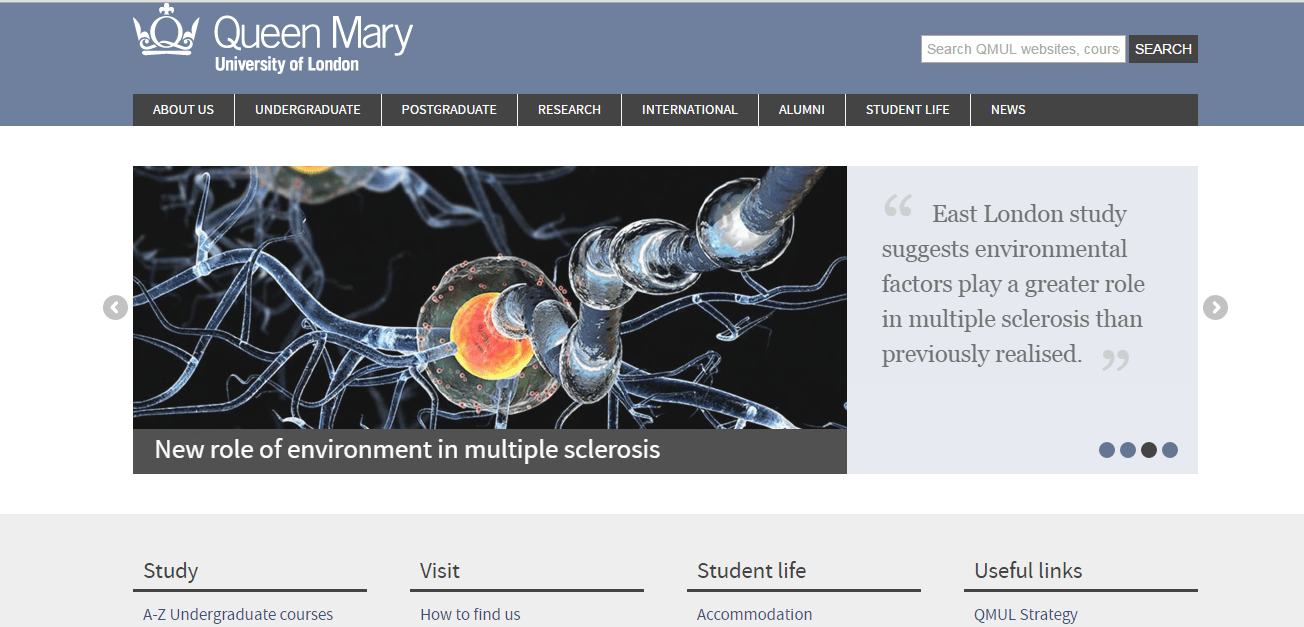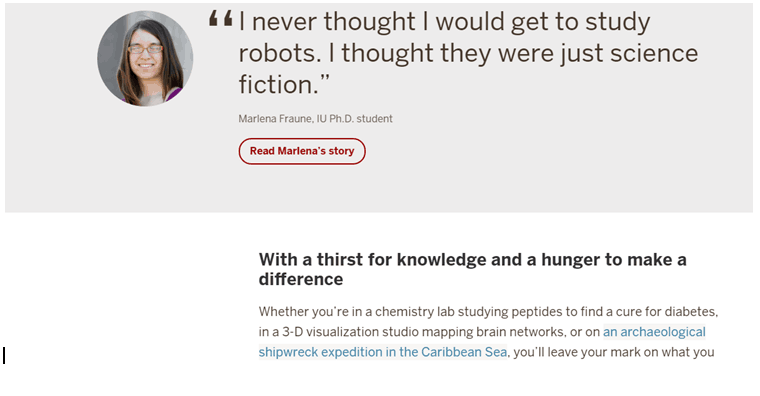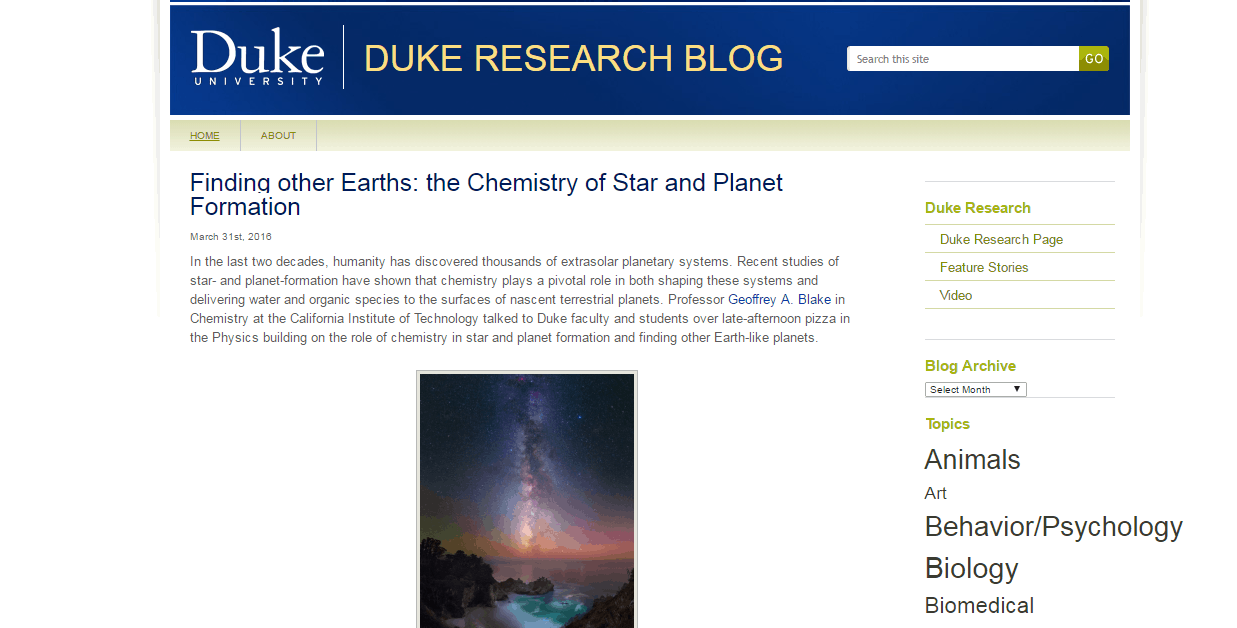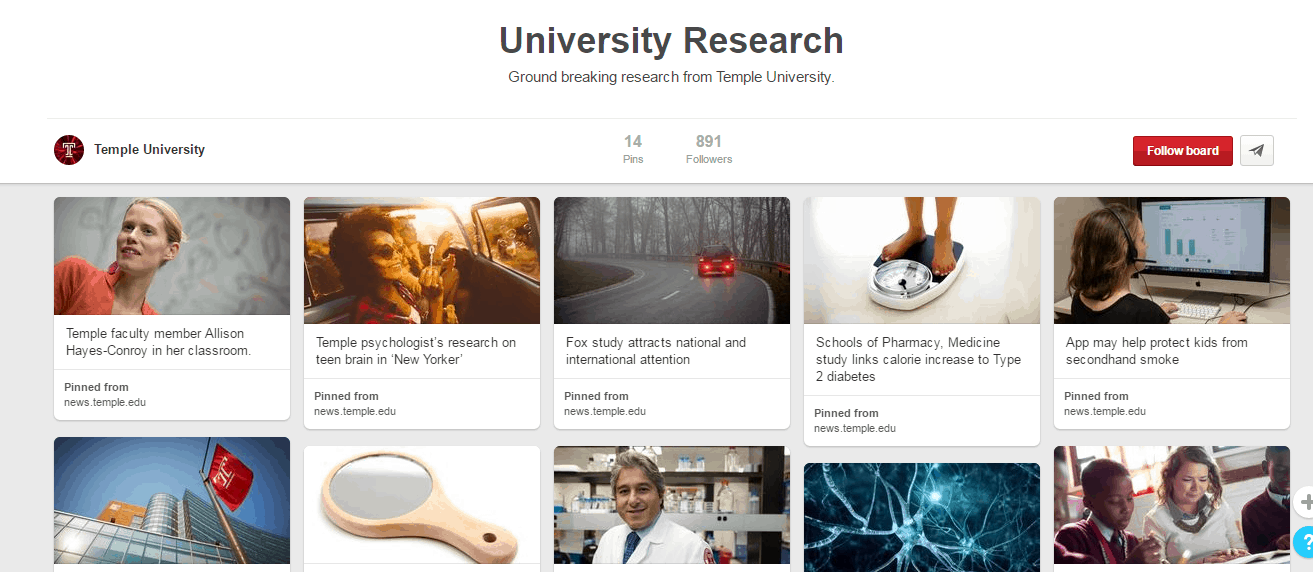
Universities have been the site of some of the greatest discoveries in human history. Stephen Hawking was working as a graduate student at Cambridge in the 1960s when he helped prove the existence of singularities, while the idea of dark energy, which is thought to make up two-thirds of the universe, came about partly because of research by astronomers Alex Fillipenko and Adam Reiss in Berkeley in 1998. Milton Friedman first developed free market economic theory during his time at the University Of Chicago, while much of Sigmund Freud’s innovative work in the formative years of psychiatry took place at Vienna University.
These achievements are a great source of pride for the institutions involved, who allowed these innovative thinkers a platform to explore their ideas, and many colleges continue to do so today. Yet, recruitment departments often neglect to promote some interesting and exciting research on their campus in their marketing activities. Speaking to The Guardian in 2013, The University of Portsmouth’s Director of Marketing and Communications neatly summed things up: “We’re all ‘research-led’ universities now- except when it comes to marketing purposes.”
This seems like a missed opportunity. For prospective students, a university with a strong reputation for research holds a certain amount of prestige, and publicizing research is an ideal way to demonstrate the expertise of your faculty and students. Not only that, but it also provides a steady stream of something inbound marketing professionals continually need: quality content. What is content research marketing? Content research marketing helps you to develop a product that will benefit your target audience.
Keeping it Simple: Academic Research Content Marketing
Academic Research Content Marketing can be a challenge. While prospective recruits may have a high level of interest in an academic field, they will probably have a limited understanding of it at this point in their studies, so simply publishing complex academic content in its original form is usually not the best option.
What’s more, the best practices employed in writing quality research, such as qualifying your statements, referencing sources in detail, and explaining the minutiae of your methodology, often aren’t necessary for what you’re trying to achieve when building leads through higher education content marketing.
Academic features need to be presented in terms that everyone can understand. Shorter, more concise summaries that capture the main points of the research will serve this purpose much better, opening the reader’s eyes to the possibilities that studying at your university could afford them by presenting your work in a simple and interesting way.
This can be done in various formats, including blogs, news articles, and interviews with researchers, students, and faculty. You could also consider breaking down the research’s pertinent points and presenting them as snippets with accompanying photos or infographics if the subject is well suited to the format.
In addition, if the actual research process has some visual appeal, as some science or engineering projects might, it can be repurposed as interesting video content, giving potential recruits a glimpse into the sort of interesting projects they can become involved in at your school.
Example: Bath University produces several professional-looking, engaging videos about their research. The video below about photonics research received over 15,000 YouTube views.

How Highlighting Research Can Transform Your School’s Website Content
Choosing the right platform for your posts is doubly important when looking to promote research as part of your recruitment strategy. Since you’ll likely be dealing with heavily specialized subject matter, you must carefully decide where to place it to maximize your exposure and connect with the right audience. The best place to start is on your school’s website.
Creating articles about your school’s research activities for your website will not only showcase important and innovative work to prospective students, but these posts also have the potential to earn plenty of inbound links, helping your school gain traction as an authority site and boosting your SEO. If you have some particularly notable research, it might be worth featuring it on your homepage to grab visitors’ attention immediately.
Example: Queen Mary University of London features research-related articles, like this one about multiple sclerosis, prominently on their homepage. This establishes to prospective recruits as soon as they land on the site that research is a priority and a prominent part of the school’s identity.

Most schools also have a dedicated research section on their site, which usually features information about their research goals, faculty members, and current or ongoing projects. Featuring articles related to notable recent studies here can also be beneficial, making it more interesting and engaging to casual visitors.
It’s also good to emphasize your student’s role in your research, perhaps by allowing them to contribute articles telling their personal stories or interviews with members of different research teams. This will help prospective students identify with the people behind the research and encourage them to picture themselves participating in similar projects at your university.
Example: The University Of Indiana Bloomington is a great example of a school whose research-related content emphasizes the role of current students. As you can see from the snapshots below, their research page features quotes, testimonials, and features about student contributions on every level rather than focusing on faculty and postgraduate research.


Another approach is to create a blog around your university’s research, which might take on a more informal tone with shorter, more visual posts. A section like this will appeal to new leads who may not have the requisite knowledge to read longer feature articles on complex research topics.
Example: Besides having a research section on its website, Duke University has a dedicated “research blog.” Formatting content like this helps convey a more accessible feel, encouraging prospective students and casual visitors to engage more.

Schools seeking a more targeted approach to university lead generation might consider featuring specialized research content within the dedicated pages of specific departments. This approach can help ensure that they attract visitors specifically interested in that field of study, which can result in much higher engagement and conversion levels.
Example: Harvard University segments its research-related content into the sub-domains of its various schools and departments. In the below snapshot of their School of Engineering and Applied Sciences homepage, research news is displayed prominently in an impressively designed scrolling image slideshow.

Again, the articles themselves are short and easy to read, while the example below also utilizes an embedded video to demonstrate the folding of a fetal human brain:


Using Your Academic Research Content Marketing in Social Media – Choosing the Right Platform
Because of social media’s more casual, conversational nature might seem counterintuitive to feature content built around advanced academic research. However, when used in the proper context, social media can provide a great outlet for promoting your research. The key, as always, is understanding your audience and presenting your content in a way that will capture their attention and resonate with them.
For example, while a school’s main Facebook page is possibly better suited to more general content, many universities see great results from setting up individual pages for various departments’ research activities. These pages can be used to attract prospects who are interested in specific areas of study. And if your posts pique their interest, they can be shared across Facebook’s large user base, gaining traction with a much wider audience.
Example: The University of Michigan’s Institute for Social Research is a great example of how to set up a research-focused Facebook page. The school shares content related to their latest studies in the field and links from their other research centres that have crossover appeal to their audience, such as the notice about a lecture being held by the Institute for Research on Women and Gender, which can be seen below.

Similarly, while Twitter is not the place to post long-form content, the brief nature of the site’s 140-character communications can be ideal for promoting links if you have a steady stream of interesting research with the potential to appeal to a broader audience. Interacting with users, for example, by hosting Twitter Q&As with students or faculty involved in studies, is also an option that can help you engage with potential leads.
Example: The Stanford University School of Medicine is a highly active research centre and hosts some groundbreaking studies. They have an extremely active Twitter feed, promoting vast amounts of content related to their research.

Other social networks also offer unique opportunities to promote your research content. LinkedIn has the advantage of having several academic and industry leaders active on the site who can endorse and share your research with a larger audience. Despite its visual nature, Pinterest is one the best traffic drivers on the web, and creating a pin board for your research content can be an excellent way to showcase your school’s exciting research opportunities to students.
Example: Temple University’s research board on Pinterest promotes various articles from the news section of their website. Each ‘pin’ builds a stored link for every post.

Tumblr and Reddit are other social media platforms strategically important for promoting research. Reddit users are among the most educated and engaged groups on the internet and welcome long-form intellectual content like articles on university studies. Meanwhile, while Tumblr boasts a younger user base with a preference for shorter content, it can also be a great place to promote research, with many colleges opting to post snippets of their research that link to full articles.
Example: Princeton’s chemistry department has created a particularly visually striking Tumblr page around their research, filling it with memes, infographics, and videos.

Benefits of Including Research in Your School’s Content Marketing Strategy
Provided they promote it correctly, schools that make their Academic Research Content Marketing a pillar of their recruitment content strategy should find that it results in clear, measurable improvements in their online presence. Well-produced, informative content built around quality university research has the potential to gain a significant amount of views, shares from outside sources, and inbound links from authority sites. Recruiters should be able to see the impact of their efforts using tools like Google Analytics and Facebook Insights and adapt and change their strategies to make them more effective.
Universities that actively promote their research may also see a more intangible but equally important result. While digital marketing has helped to somewhat level the playing field in recruitment, with smaller universities raising their profile through effective promotion, many prospective students still base their choice of university on prestige.
For instance, in the UK, a 2012 study showed that, despite efforts from other institutions to compete by offering favourable pricing and degree content, applicants continued to favour older and more well-known universities, such as those which were members of the prestigious Russell Group.
Promoting your school’s research could be crucial to elevating your reputation to a new level and showing prospective students that your studies and innovations have just as much merit as the most highly regarded institutions in the world.
FAQ to Consider:
What is content research marketing?
Content research marketing helps you to develop a product that will benefit your target audience.






